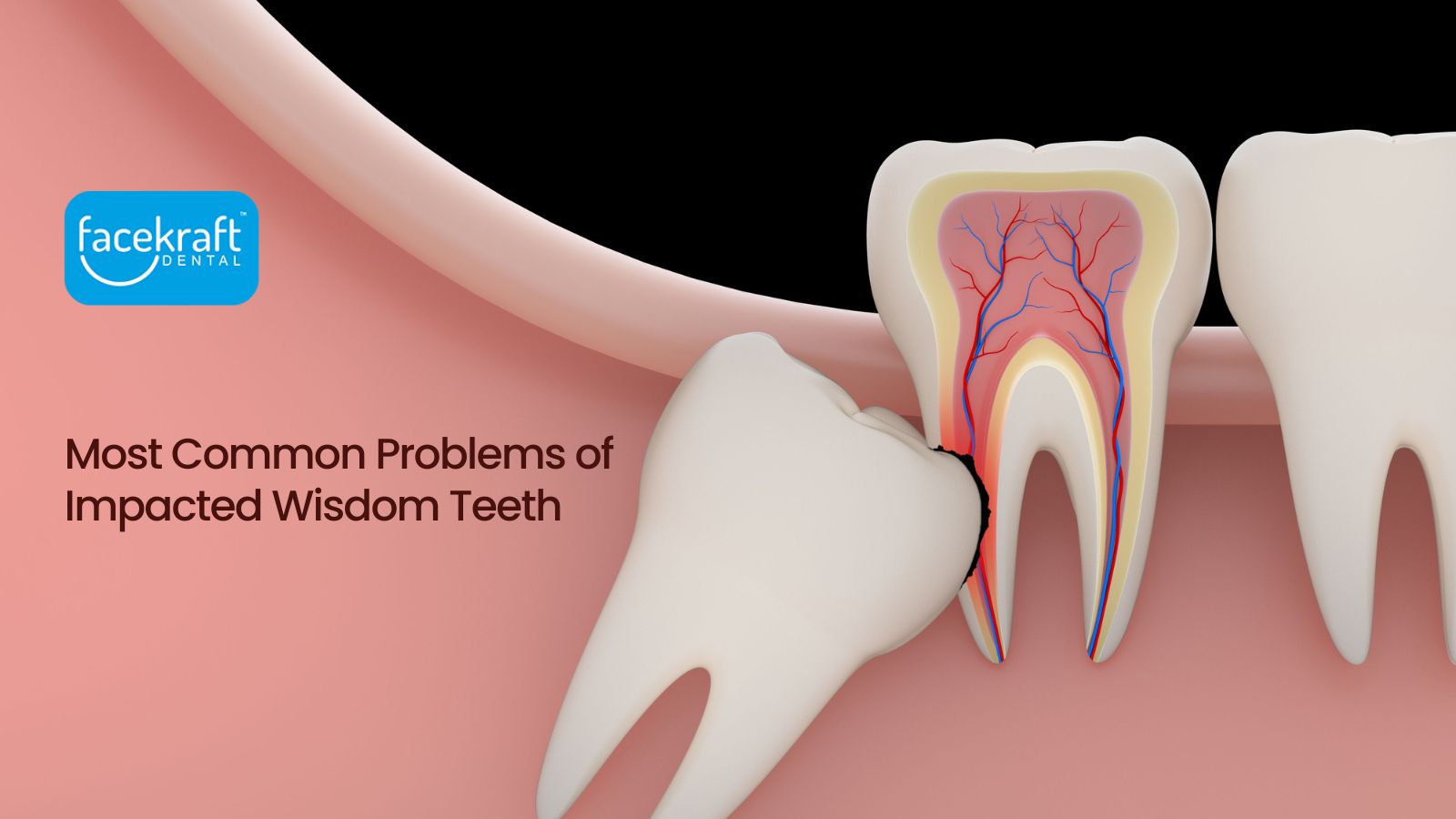Most Common Problems of Impacted Wisdom Teeth
Wisdom teeth, also known as third molars, typically emerge in your late teens or early twenties. While some people are lucky enough to have their wisdom teeth come in without any issues, many experience complications when these teeth fail to fully erupt or align properly. These are known as impacted wisdom teeth, and they can lead to several dental problems if not addressed. In this blog, we’ll explore the most common problems associated with impacted wisdom teeth and why timely intervention is crucial for your oral health.
Pain and Discomfort
One of the earliest signs of impacted wisdom teeth is discomfort in the back of the mouth. This pain can be dull and constant or sharp and sporadic. It may radiate to the jaw, ear, and even the head, mimicking other conditions like migraines or ear infections. Pain arises when the tooth presses against nerves, other teeth, or surrounding bone.
Swelling and Inflammation
Impacted wisdom teeth often lead to swelling and redness in the gums around the affected area. This swelling can extend to the face and neck, making it uncomfortable to chew or even speak. In some cases, this inflammation can lead to infections, abscesses, or even cysts.
Crowding and Tooth Misalignment
When there isn’t enough space in the mouth for wisdom teeth to emerge properly, they can push against adjacent teeth. This pressure can cause misalignment, leading to crowding of the other teeth, which may undo years of orthodontic work. Misaligned teeth can also increase the risk of cavities and gum disease as they become harder to clean.
Gum Disease (Pericoronitis)
Partially erupted wisdom teeth can create a small flap of gum tissue, which becomes an ideal trap for food particles and bacteria. This can lead to an infection known as pericoronitis. Symptoms include swelling, pain, bad breath, and difficulty opening the mouth. If untreated, the infection can spread to nearby areas, making it a serious health concern.
Cysts and Tumors
In rare cases, impacted wisdom teeth can lead to the development of cysts—fluid-filled sacs that form in the jawbone. Over time, these cysts can damage the surrounding teeth, bone, and nerves, and may require surgical removal.
Tooth Decay
Impacted or partially impacted wisdom teeth are difficult to clean properly due to their awkward position at the back of the mouth. As a result, food particles and plaque can easily build up, increasing the risk of cavities. Tooth decay can further lead to infection or damage to adjacent teeth, complicating oral health even more.
Sinus Issues
Interestingly, impacted wisdom teeth can also affect your sinuses. The upper wisdom teeth are located close to the sinus cavities, and if they grow in at an odd angle or press on the sinuses, it can cause sinus pain, pressure, headaches, and even congestion. In such cases, consult your nearest dental clinic in Jaipur as soon as possible.
Difficulty Opening the Mouth
In some cases, impacted wisdom teeth can cause a condition called trismus, where the jaw muscles become stiff and make it difficult to fully open the mouth. This can affect your ability to eat, speak, and perform daily activities, adding discomfort to an already painful condition.
When to Seek Help
If you’re experiencing any of the symptoms listed above, it’s important to consult with a dentist in Jaipur or oral surgeon. X-rays can determine whether your wisdom teeth are impacted, and your dentist will help you decide the best course of action, which may involve monitoring the situation or opting for wisdom tooth extraction.
Conclusion
Impacted wisdom teeth are a common dental issue that can lead to various complications if left untreated. Pain, swelling, infections, and alignment problems are just a few of the common issues that may arise. Early detection and treatment are key to preventing these problems and ensuring that your wisdom teeth do not compromise your overall oral health. If you suspect that you have impacted wisdom teeth, don’t wait—schedule an appointment with your dentist in Jaipur to avoid future complications.

